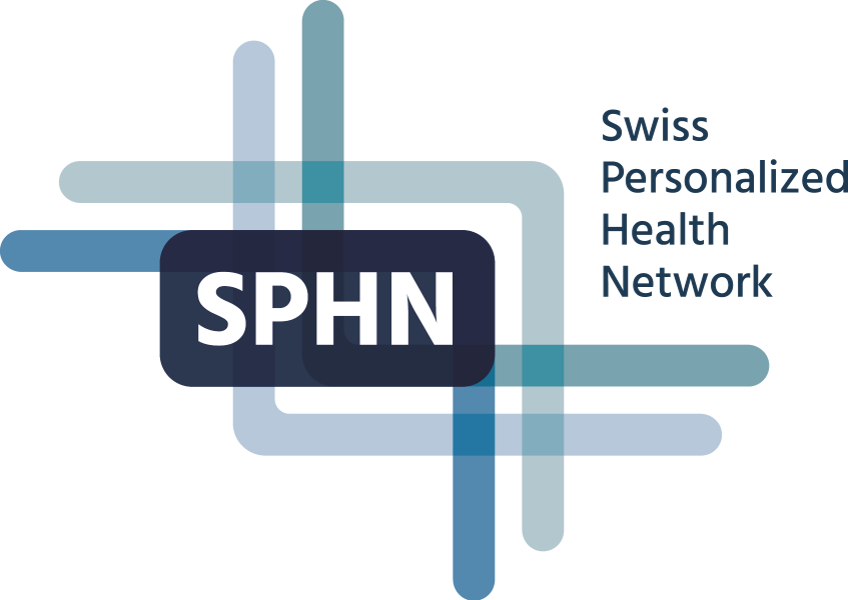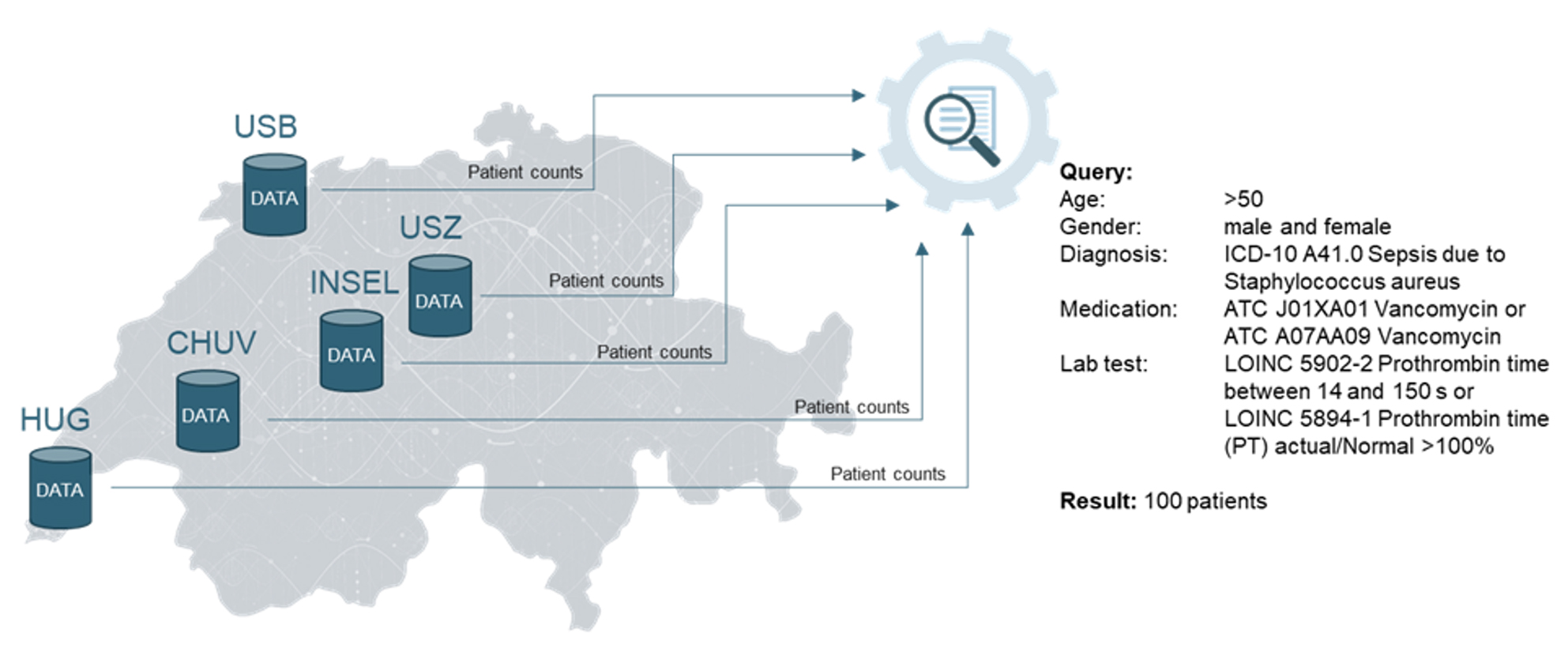The five university hospitals of Switzerland are:
- Centre hospitalier universitaire Vaudois – CHUV (Lausanne University Hospital)
- Hôpitaux Universitaires de Genève – HUG (Geneva University Hospitals)
- Inselspital, Universitätsspital Bern – INSEL (University Hospital of Bern)
- Universitätsspital Basel – USB (University Hospital of Basel)
- Universitätsspital Zürich – USZ (University Hospital of Zürich)
The FQS allows researchers to verify the feasibility of their project by assessing whether suitable patient data for specific research questions exist at Swiss university hospitals. The available information in the system, currently more than 70 million data elements from over 450’000 patients, who have consented to the further use of their data for research purposes, is a subset of the clinical data of all five university hospitals.
The platform includes demographic data (age and gender), diagnosis (coded in ICD-10), procedures (coded in CHOP), medication (coded in ATC), laboratory tests (coded in LOINC) and laboratory test results with units (according to UCUM). Under the project lead of the SPHN Data Coordination Center (DCC) managed by the SIB Swiss Institute of Bioinformatics, the clinical partners harmonized and standardized the anonymized clinical information, making it available for federated queries via a common front-end.
The FQS uses a customized version of Patient Network Explorer, enabling researchers to search for fully anonymized clinical information across all five university hospitals, while allowing the hospitals to retain full control over their data. It fully complies with privacy requirements, since only aggregated search results are shared with users and small patient numbers are obfuscated to prevent potential re-identification.
”For the first time, it is now possible to run feasibility queries for data-driven research projects over all five university hospitals in Switzerland. This is a major step for SPHN,” says Dr. Katrin Crameri, Director, Personalized Health Informatics of the Swiss Institute of Bioinformatics. “Adapting the Patient Network Explorer technology to SPHN's needs and specifications was necessary because the focus of the SPHN Federated Query System lies on data. We are confident that the customization in Patient Network Explorer for SPHN can also be beneficial for other research networks outside Switzerland.”
“We are very pleased to be able to announce this collaboration, our first closed network based on Clinerion technology, as it is in our home country of Switzerland,” says Baris Erdogan, CEO of Clinerion. “Even in a closed network, the federated, cloud nature of Patient Network Explorer offers great flexibility in assembling patient data access from across multiple data warehouses and silos while keeping the data within the IT infrastructure of each hospital. We foresee that this achievement can be used by other national networks, closed research consortia and other organizations who have collected data from multifarious sources, around the world.”
Swiss Personalized Health Network (SPHN) website >








